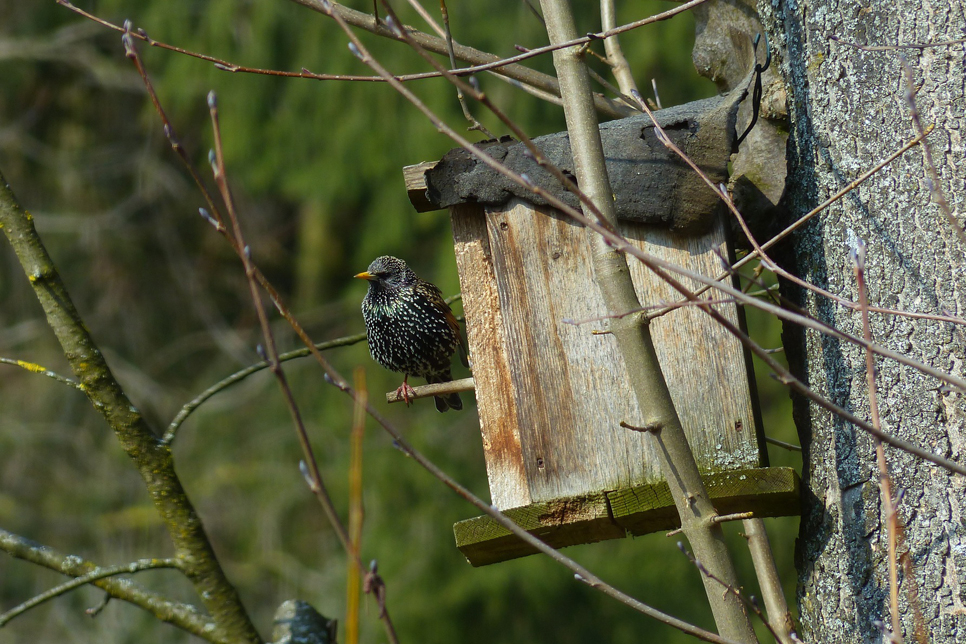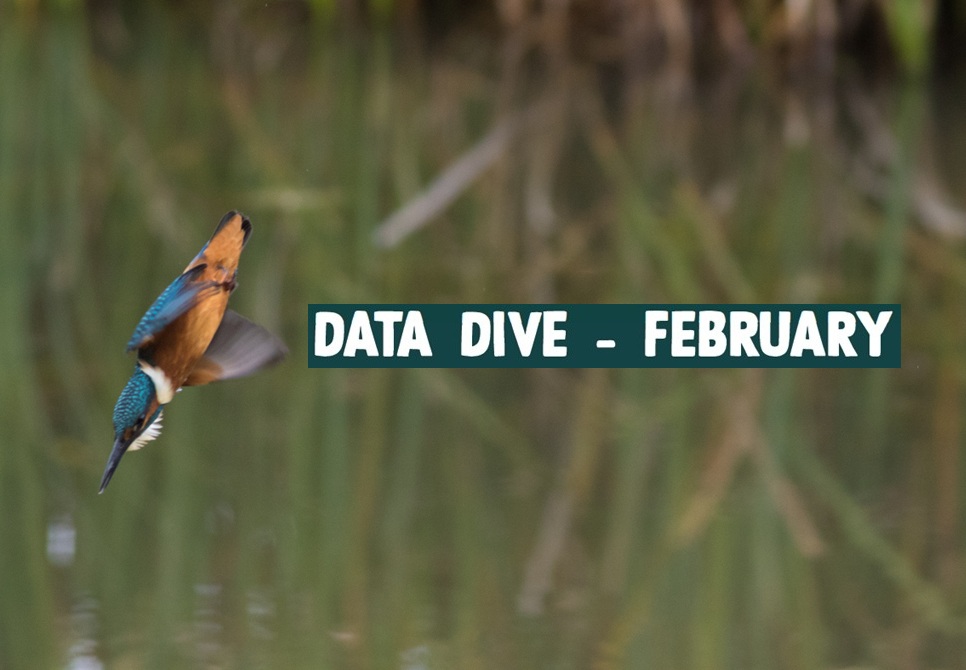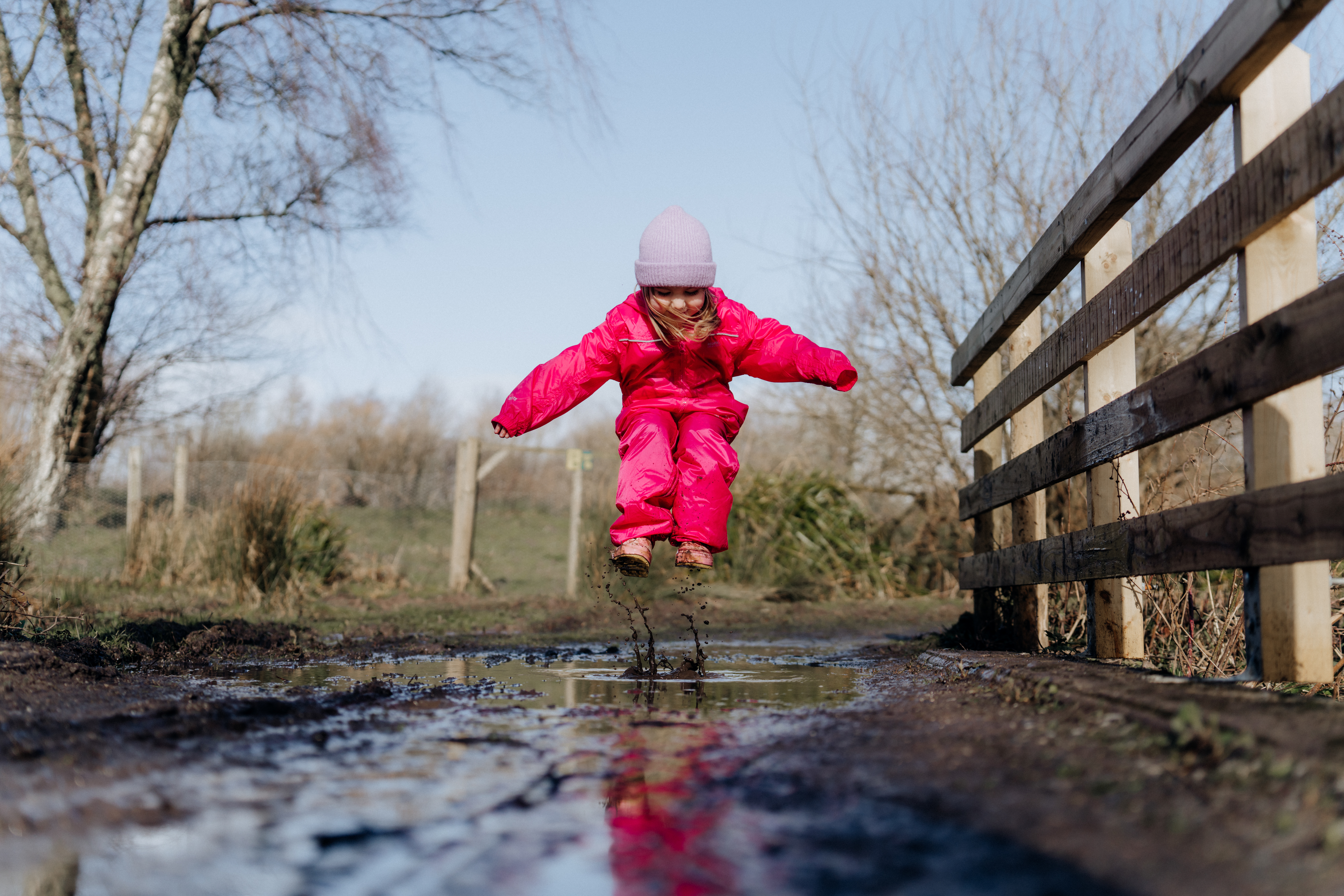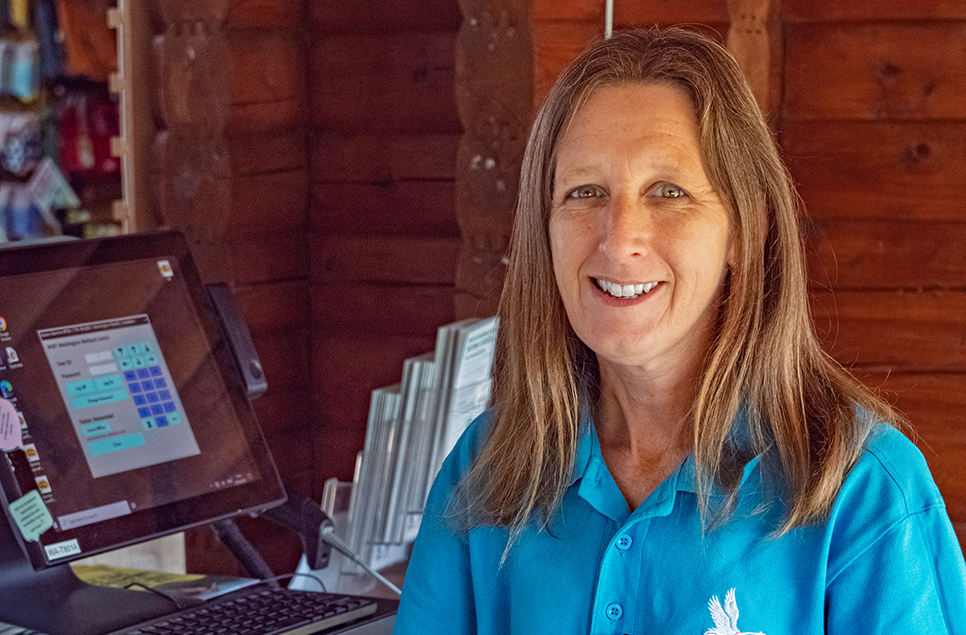Meet the team: Michael Jones - Reserve Warden
This month we meet reserve warden Michael Jones hearing about his journey into conservation from a career path in 3D modelling! We enjoy chatting to him to find out why he made such a dramatic career change and what he finds most rewarding about his role.
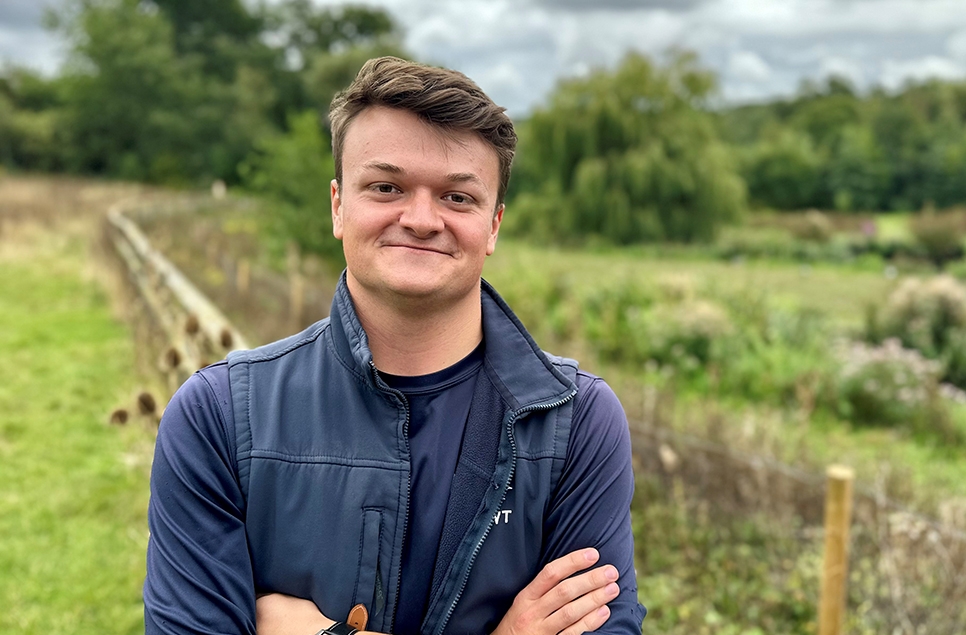
WWT Washington's wild reserve takes many hands to manage. Our team are a dedicated bunch and commit their days to managing the habitat that many animals call home. We're pleased to introduce you to another part of our reserve team - reserve warden Michael Jones - to find out his story.
Hello Michael! Let's start by asking the classic opening question, how long have you worked at WWT Washington?
I’ve been at WWT for about 3 years now squeezing in a few roles in that time. I was a reserve volunteer on Thursdays and Sundays then became a part-time placement student for just under a year, before I got a full-time role in 2024.
What inspired you to become a reserve warden?
I’ve been interested in wildlife since I was a kid when my parents would take me to nature reserves around the country, and my gran used to teach me the names of the garden birds that would be feeding outside her caravan. Plus just about every holiday I had as a kid was in the Lake District, which all sparked a passion for nature.
But it would be a long time before I realised just how much I wanted, and needed, to get into the kind of work I'm doing now. I actually studied to work in the digital art field studying 3D modelling at university before all of this. To be honest, if it wasn’t for the difficulties of finishing my final year during the start of covid and how hard it was to find work during and after it, I might not have taken the time to think about what I really wanted to do with myself and then taken a leap into something new.
I started by studying Land and Wildlife Management at Houghall East Durham College and volunteered at a few places alongside it, but it was volunteering here at WWT Washington that really set everything in motion. I was volunteering here twice a week before I was lucky enough to become a part-time Practical Reserve Management Placement, which helped me to gain the experience and develop my skills to then be able to start full time as a Reserve Warden just last year. It's been a massive rollercoaster of an experience!
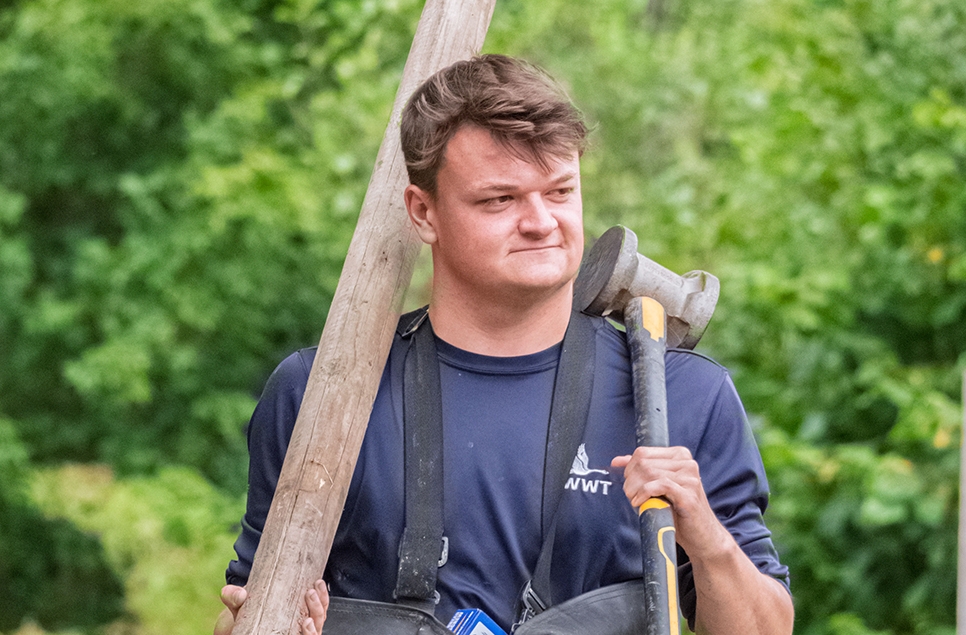
What kind of training/experience or education is required to become a reserve warden?
My route into this industry hasn’t been the typical one, and I think it shows that there are lots of ways to get your foot in the door. Pursuing academic study at any level you can is an important place to start, and this will help you to get the knowledge required. Learning wildlife identification skills, knowledge of habitat types and management strategies as well as practical qualifications with tools and machinery are all an important part of what, how and why we do the work.
But ultimately I think the most important part for everyone is to volunteer, gaining the hands-on practical experience of how the work is actually done, which is invaluable. Learning to work with other people might be one of the most important skills to learn, most of which you have to adapt to do while being soaked from any weather that the UK likes to throw at us!
What advice would you give to someone aspiring to work in conservation or in a nature reserve?
Identification skills are key to any kind of role within the conservation sector, no matter what level you are trying to get into it. Any kind of wildlife ID is a good place to start and you often find that people each have a specific interest, whether that’s birds, invertebrates, amphibians, reptiles or mammals. Tree and plant ID probably comes up the most - knowledge of what kind of flora your looking at informs much of what we do and is an important starting point for the kind of work each habitat needs, as well as being an important indicator of what kind of wildlife you can expect to find.
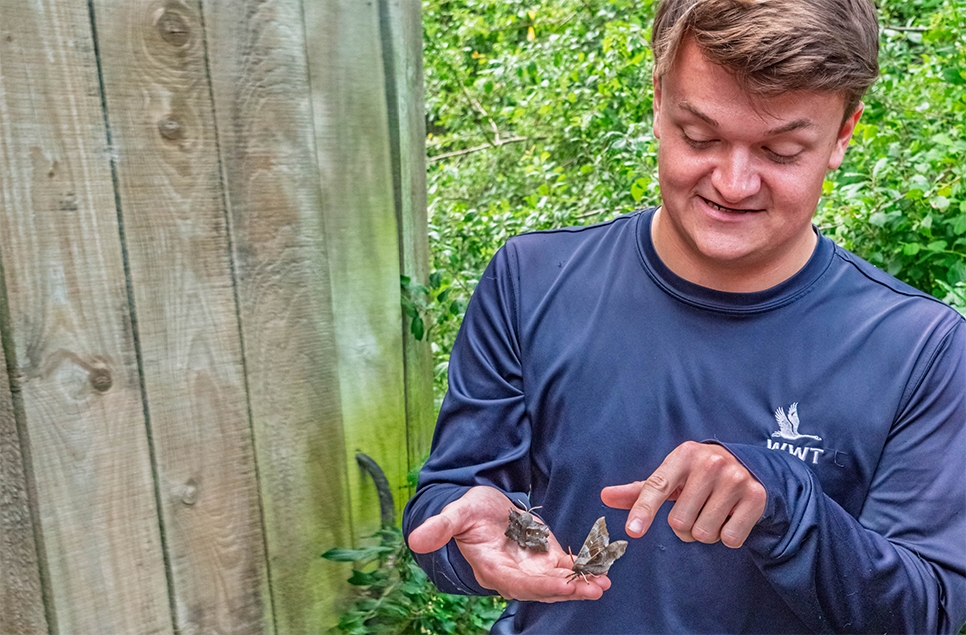
Can you describe a typical day?
We start our day at 8:30am where we have several essential tasks on a rota that need to be completed before we even open to visitors. That could be checking that the play area is safe and clean or walking the inner circle around our living collection, sweeping up and tidying, but the main morning task for us on the reserve team is ‘fence check’.
We have a large electric fence that surrounds the site which needs to be checked every morning for damage. This fence keeps predators like otter and foxes as well as large mammals like deer from getting onto the main parts of the grounds. This is important to protect our collection birds but is equally important for Wader Lake where species of wild breeding birds like common tern and avocet during the summer. We also use this time to record what birds, mammals, amphibians etc that we see while walking around, which gives us valuable data to look back on for population numbers or if a rare animal visits the site - this is shared with visitors on our latest daily sightings.
The day's tasks change throughout the year and it really depends on what season we're currently in, making it difficult to describe a ‘typical’ day. We work as a group to carry out a lot of different tasks, whether that’s tree work during winter - coppicing and pollarding trees and hedgerows while there are no breeding birds using them and planting new trees to grow up in the following years, to spring and summer where we have to manage the constantly regrowing vegetation that can block paths and views from hides, as well as monitoring the many breeding species of animals on site, to finally, late summer into autumn when we cut most of our meadows before winter sets in. These are only a few examples of what jobs we do throughout the year, it’s a job that requires us to be very adaptable and do some tasks within a sometimes tight timeframe.
But the end of the day is always the same, clearance. Between two people we have to clear the whole site making sure that any visitors still around know that we're closing and that the gates and hides are locked for the site to rest overnight.
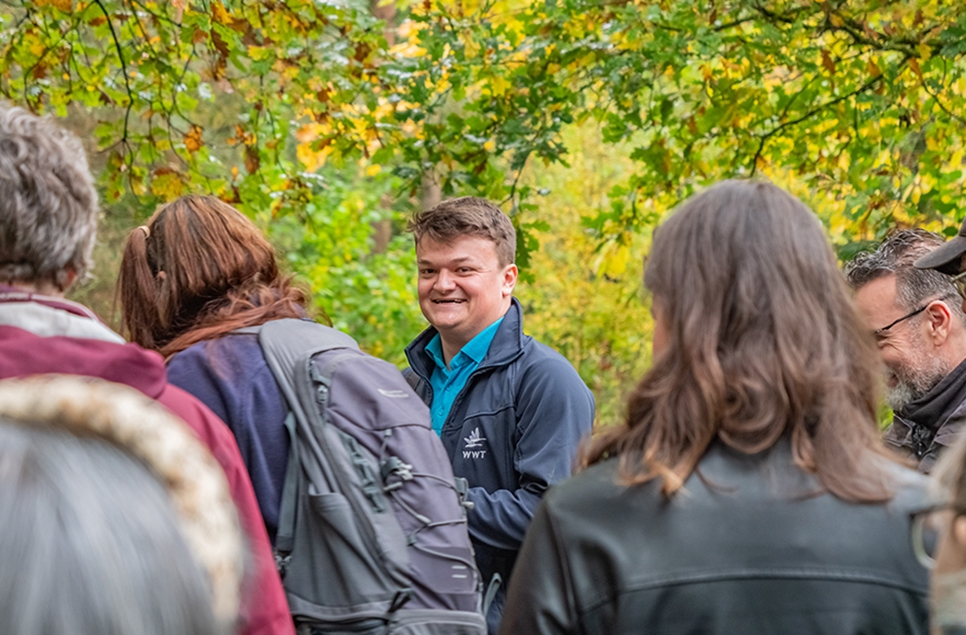
What are the most rewarding aspects of your job?
It may sound cliché but for me it’s a job well done, being able to look back on what we’ve done and see the site being built up throughout the year is very satisfying. Although it's great to look back over the meadow you’ve just cut or the fence you’ve built that you’ll pass every day from then on, it’s the smaller more personal construction projects that are a big part of why I like my job. During my time here, I’ve built several things I’m proud of and are; what I hope to be, lasting parts of the site that many species of both flora and fauna can make their home. The bee house that now stands in our insect garden, the wildlife hotels made from recycled palettes and the willow fence that guides people into the newly opened Wet Wood are a few examples.
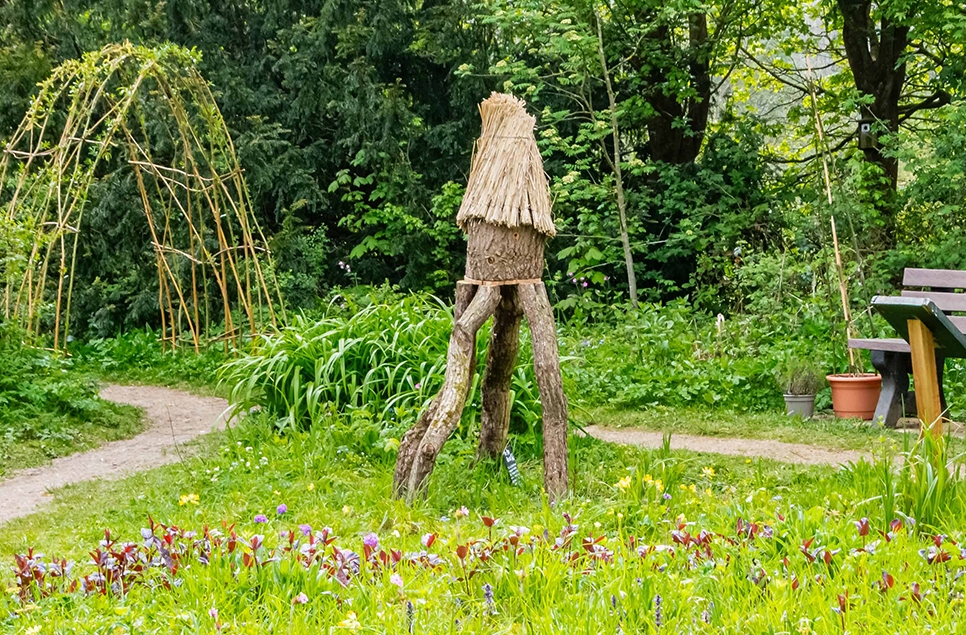
Can you tell us of any challenges in your role and how you overcome them?
One of the biggest challenges is the reactive work that often happens because of the weather - storms can cause a lot of damage around the site! During my first year we had a near constant season of heavy rainfall throughout summer into winter that damaged the paths considerably. Having to repair paths with new aggregate and dig trenches to drain of the water often every week took up a lot of our time. Heavy winds also brings down some trees around site forcing us to close or close some parts of site to do repairs on our infrastructure.
What has been your most memorable experience with wildlife as a reserve warden?
It’s hard to pick between so many good memories, but I think the first evening I was on clearance in winter when the large flocks of curlew come to roost on Wader Lake has to be one of the most memorable moments for me. Watching hundreds of curlew landing on the lake is a sight to behold, my personal record that year was just under 900!
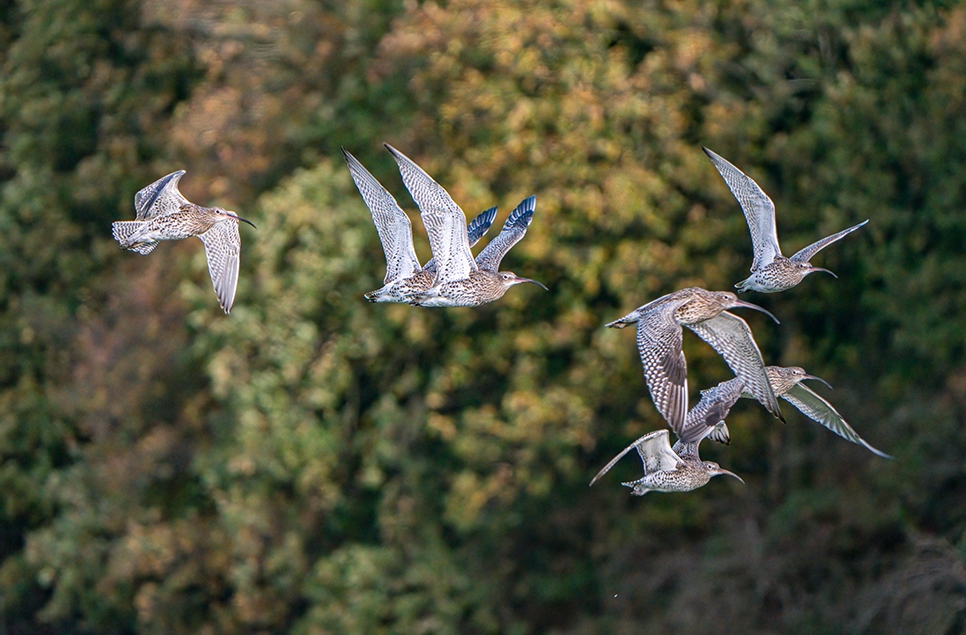
If you could swap roles for one day with a colleague, who would it be and why?
I would swap with one of Collection Keepers for a day, getting to be more hands on with the birds that we look after would be quite a different experience for me. As one of the reserve team we do a lot of work ‘for’ wildlife but rarely get to work ‘with’ wildlife directly.
Do you have a favourite animal or mammal on site?
My favourites are dragonflies, they're amazing creatures, beautiful and fun to watch. My personal favourite is a large hawker dragonfly with a fairly unassuming name, a brown hawker. They, unlike most other dragonflies, which have black wings, have striking metallic brown wings appearing like they're made of copper, which look amazing when the light catches them just right. They may look all brown while in flight but they actually have a lovely combination of blue and green down their sides that look like inlaid jewels. Unfortunately like a lot of hawker dragonflies, they don’t sit still long enough to be fully appreciated, preferring to fly in circles around ponds and rarely perching for a photoshoot!
It’s been a good year for sightings of rarer dragonflies on our reserve as well, we had a black-tailed skimmer dragonfly - a rare visitor to our site as well as a site first, a lesser emperor dragonfly (pictured below by visitor Alistair Cryer) - a more southern species that has been making its way further north in recent years.
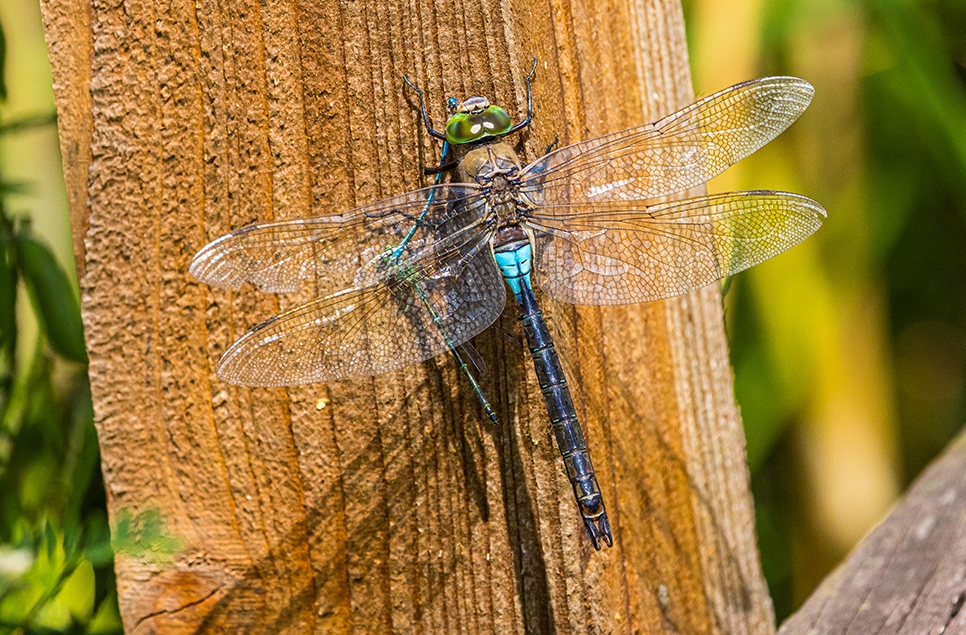
What’s the best location on site to you? (great views, relaxing vibe, or just a good place to spot something interesting)
My favourite part of the site is Spring Gill, a stream that cuts through the reserve feeding into the River Wear. The bridge over the gill is a great vantage point to appreciate some of the biggest and oldest trees on site, the huge oaks and ash trees with colourful rowans dotted amongst them, creates a very enthralling location. It’s also one of the main routes for animals to cross between the two meadows on either side of Spring Gill; roe deer, fox and hares make regular passage across several fallen trees that gap the drop down into the stream, which has led to some of my favourite camera trap footage we’ve gotten on site.
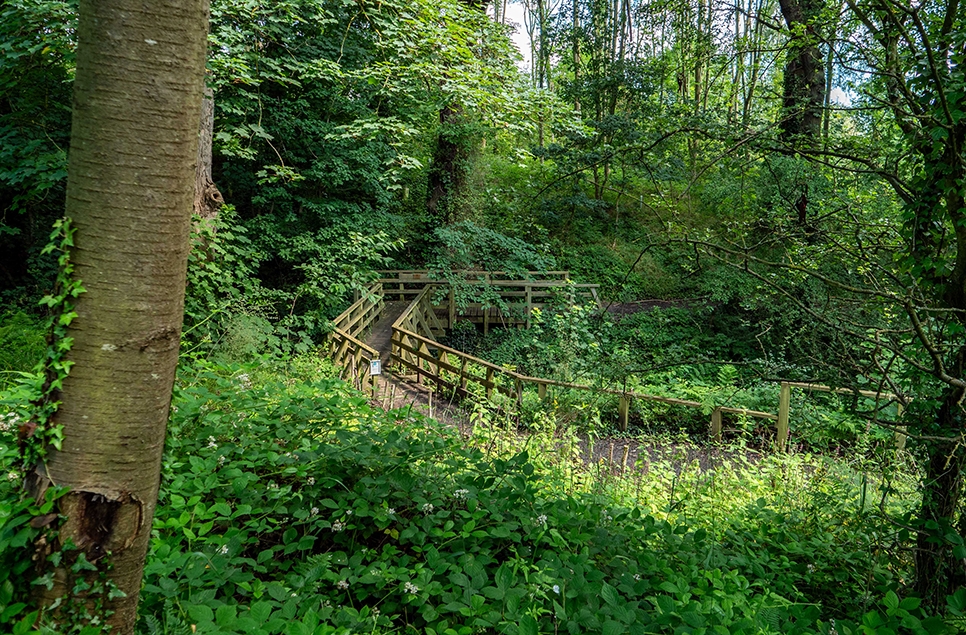
Fancy meeting more of our team?
We're introducing you to the team here at WWT Washington who are from a variety of roles within the trust, and who have a plethora of career and education backgrounds.
Meet the team